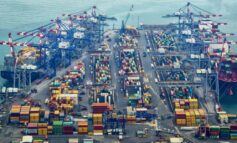Port infrastructure and the quality of shipping services in a region or country are important determinants for the countries integration in the global market and the competitiveness of the same. PortEconomics associate member Gordon Wilmsmeir analyses the evolution of symptoms of change in the liner shipping industry within South America and more particularly on the West Coast, as direct drivers for port infrastructure and port system development – in a study which was first presented at the OECD Port Investment and Container Shipping Markets Santiago, in Chile and is both economically interesting and a matter of serious policy significance.
In a study predominantly on the challenges for port development, Gordnon discusses the deeper phenomena of structural change in the maritime industry and geographical shift. Given the sustained growth in emerging economies, despite the recent crisis, port infrastructure development has emerged as a crucial issue for future economic growth. The West Coast of South America (WCSA) and particularly Chile have been experiencing significant economic expansion over the last two decades. However, the role of infrastructure and its contribution to continued economic and social development has only recently returned to the political agendas.
The growth in demand for port infrastructure, the structural changes in the maritime industry and a changing geography of trade have clearly revealed the limits of the current transport infrastructure in the region and the country. Infrastructure development, and in particularly port infrastructure expansion decisions are politicized full of historicism and case-specific empiricism. Thus this work tries to stimulate a more systemic view to support more contextual, integrated and long-term policy decisions as regards container port developments in the West Coast of South America (WCSA) and particularly Chile.
You might download the discussion paper via the the ITF/OECD website: Liner Shipping Markets, Networks and Strategies. The implications for port development on the West Coast of South America. The case of Chile
Download the presentation.












